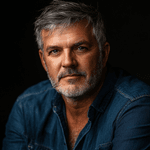Top Venezuelan Pianist Calls for Global Boycott of Controversial Youth Orchestra

A Bold Call to Action from a Musical Icon
In a move that has sent shockwaves through the global music community, a renowned Venezuelan pianist has urged the international music world to distance itself from a youth orchestra closely tied to the government of Nicolás Maduro. This call for action has sparked intense debate, raising questions about the intersection of art, politics, and morality.
The pianist, celebrated for their exceptional talent and global influence, has taken a firm stance against what they describe as the orchestra’s complicity in propping up a regime accused of widespread human rights abuses. But is it fair to hold an artistic institution accountable for the actions of a government? Let’s dive deeper into this unfolding controversy.

The Orchestra at the Heart of the Debate
The youth orchestra in question has long been a symbol of national pride in Venezuela, celebrated for its role in nurturing young talent and bringing classical music to underserved communities. However, critics argue that its close ties to the Maduro administration have tainted its reputation. They claim that the orchestra has been used as a propaganda tool, overshadowing its artistic achievements.
The pianist’s call for a boycott is not just about the orchestra itself but about sending a message to the regime. “Music should unite people, not be used as a weapon to divide or oppress,” they reportedly stated. This sentiment has resonated with many but has also drawn criticism from those who believe that art should remain apolitical.
A Divided Response from the Global Music Community
The pianist’s appeal has elicited mixed reactions from the international music scene. Some prominent figures have voiced their support, arguing that silence in the face of injustice is tantamount to complicity. Others, however, have cautioned against politicizing art, warning that such actions could harm the very young musicians the pianist seeks to protect.
- Supporters argue that the boycott is a necessary stand against a regime accused of suppressing dissent and violating human rights. They believe that the global music community has a moral obligation to act.
- Critics counter that the boycott could unfairly punish young musicians who have no control over the orchestra’s political affiliations. They also question whether such actions can truly effect change in Venezuela.

The Broader Implications for Art and Activism
This controversy raises larger questions about the role of artists in political activism. Should musicians and other artists use their platforms to advocate for social and political change? Or should they focus solely on their craft, leaving activism to others?
Historically, many artists have used their work to challenge injustice and inspire change. From protest songs to politically charged performances, art has often been a powerful tool for activism. However, the line between advocacy and exploitation can be thin, and not all artists are comfortable navigating this complex terrain.
What’s Next for the Youth Orchestra?
As the debate rages on, the future of the youth orchestra remains uncertain. Will the international community heed the pianist’s call and sever ties with the institution? Or will they choose to support the young musicians while condemning the regime?
For the orchestra’s members, this controversy has added a new layer of complexity to their already challenging circumstances. Many of these young musicians come from disadvantaged backgrounds and view the orchestra as a lifeline. How will a potential boycott impact their lives and careers?

A Personal Reflection on the Issue
This situation is a stark reminder of the challenges that arise when art and politics collide. While the pianist’s intentions are undoubtedly noble, it’s worth asking whether a boycott is the most effective way to bring about change. Could there be alternative approaches that address the regime’s actions without jeopardizing the futures of young musicians?
At the same time, it’s hard to ignore the power of collective action. History has shown that when artists and audiences unite for a cause, they can achieve remarkable results. Perhaps this controversy will inspire a broader conversation about the responsibilities of artists in times of crisis.
The Final Note: A Call for Dialogue
As this story continues to unfold, one thing is clear: there are no easy answers. The global music community must grapple with difficult questions about the role of art in society and the responsibilities of artists in the face of injustice. Whatever the outcome, this controversy serves as a powerful reminder of the profound impact that music—and those who create it—can have on the world.

Read on...
Table Of Contents
Legal Stuff

